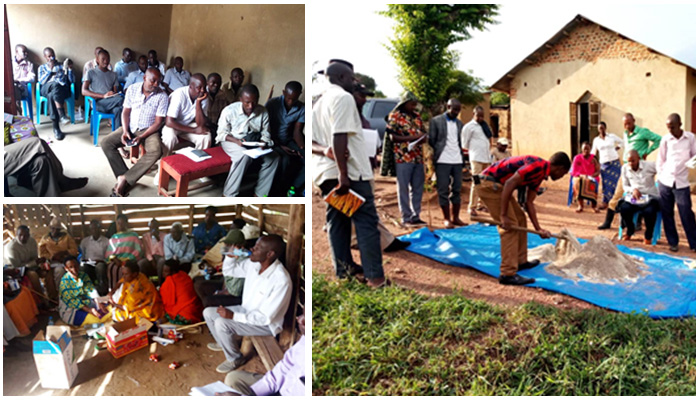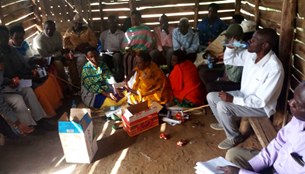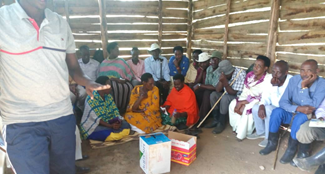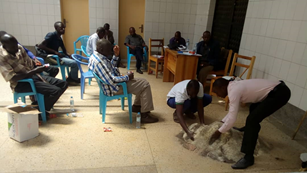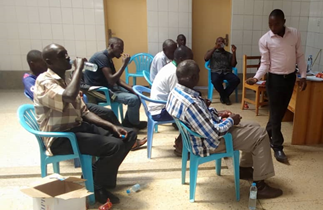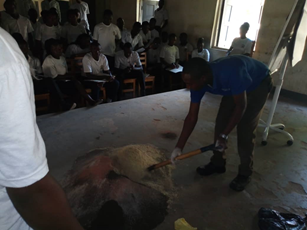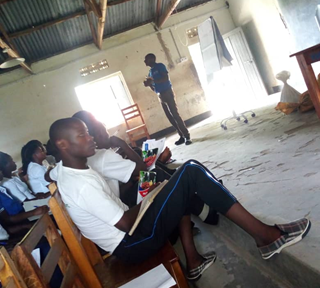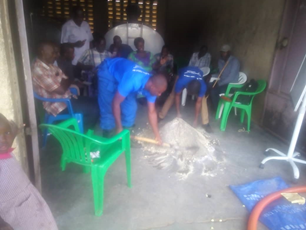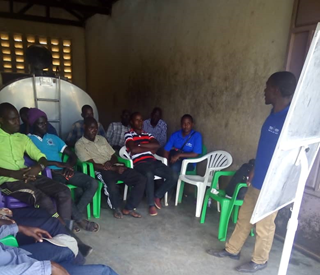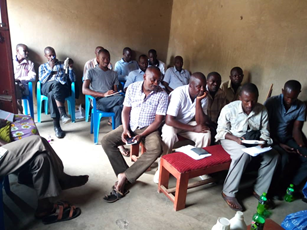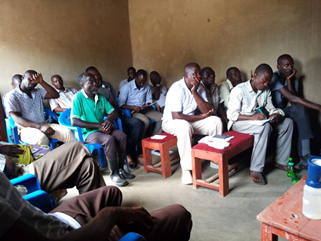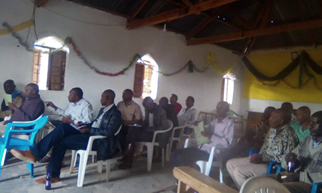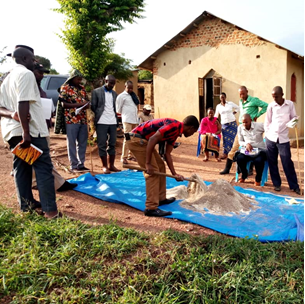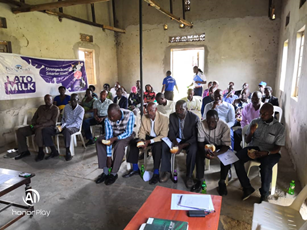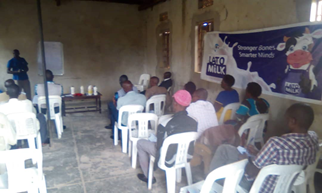During March PDFC conducted 7 farmer training in different places in Uganda with Tick-borne disease and dry season concentrate feeding being the major topics of discussion. Tick-borne related diseases in cattle are not only a common phenomenon, but also pose a key constraint of livestock production. This not only has a considerable economic impact on rural people’s major supply of food but also their daily income. As a result, a substantial number of training on the same was important to be conducted during the month of March 2019. Being a dry season, our facilitators also gave training on dry concentrate feeding to help keep the animal productivity at par.
Purpose of this training was to give participants a chance to review the problems and challenges related to tick-borne diseases and how to work out the solutions for improving the situation. Tick control is possible using chemicals such as acaricides. Farmers were educated on how to fight this threat using some of the most effective and sustainable control methods.
The facilitators also wanted to enlighten the farmers on how to maximize dry season concentrate feeding during the dry season. During this season pasture tend to be low in supply and in return may lead scarcity of food for animals hence poor nourishment. This usually results in poor performance of the animals in terms of reduction in growth rate, draught ability, production, and reproduction. To combat these challenges, the facilitators advised the farmers on strategic practice of using concentrate feeds.
The training took place in Rwemikoma MCC, Rwiigi coop society, Ishongoro coop society, Kyemamba coop society, DAFCU coop society, Ibaare coop society and Nyakyera.
